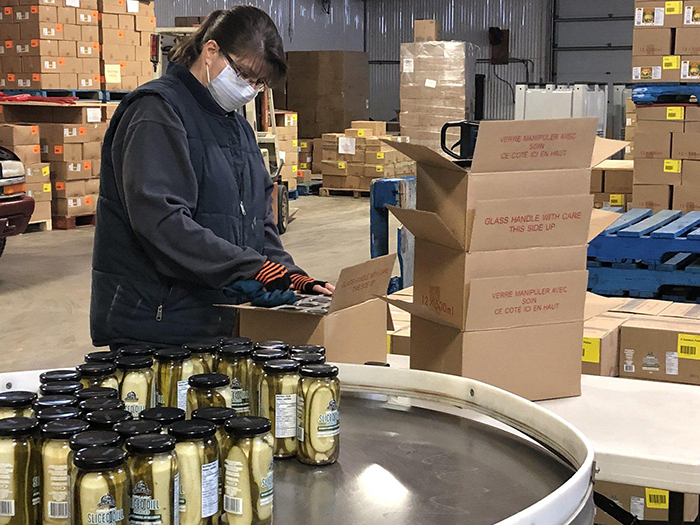
By Pam Wright, Local Journalism Initiative
The Thamesville Herald
It will cost John Jaques $100,000 to keep temporary foreign workers on his Thamesville asparagus farm safe during 2021 growing season.
The owner of Sunshine Farms near Thamesville says he’ll be spending the cash to follow provincial and federal COVID-19 rules. And while it is a lot of cash, Jaques says it is necessary.
“We want them to be safe,” Jaques says. “If they’re not safe, we’re out of business.”
Jaques will employ 30 workers from Mexico, as he usually does, but the details of how they will get here haven’t been finalized.
Under the Temporary Foreign Worker program, the federal government arranges flights and the farmer pays.
Jaques’ workers are tentatively scheduled to fly in April 16 and 20 and he says that’s just in the nick of time. There are 60 acres of asparagus, among other vegetables, growing at Sunshine Farms, and it’s an early crop.
It’s a flashback to 2020, when Jaques was waiting on pins and needles after the federal government banned all air travel to stop the spread of COVID-19, causing large delays in the arrival of migrant workers as the travel decision had to be reversed for the farm community.
Cucumbers are another major crop. The farm produces a wide array of pickles and pickled vegetables on site, which in turn are shipped across Ontario and to Western Canada.
When workers arrive in Canada they must have a recent COVID-19 test in their home country, no less than three days prior to arrival. At customs, they are again tested for the virus.
A 14-day quarantine period, at the farmer’s expense, then takes place at the farms where they will live and work.
Jaques thinks a lot of safety problems could be solved if the workers were vaccinated upon arrival in Canada.
“It would make sense,” he adds. “It’s smart and logical.”
He says workers didn’t bring COVID-19 to Canada last year, but they became a target after outbreaks of the virus at area greenhouses.
“My blood boils when I hear this,” Jaques says, adding COVID-19 was spread due to the actions of employment contractors and temp agencies.
The biggest outbreak in Chatham-Kent involved 103 migrant works at Greenhill Produce in Kent Bridge and dozens more cases were traced to operations in Leamington and Kingsville. Many could be linked to contractors who brought in the farm workers, housed them in hotels and contracted their work out to various farms. Chatham-Kent’s medical officer of health believes a contract worker from Essex was the source of the Greenhill Produce outbreak.
For the 2021 season, farmers are being instructed to cohort workers and keep them together in “bubbles,” even while transporting them from place to place.
Some local farmers have to purchase extra vehicles to accommodate the change.
This year, Jaques has additional housing for his workers to provide them the necessary space for physical distancing. He had to purchase a building and four large trailers for his workers.
Jaques will be working closely with CK Public Health and provincial inspectors to meet this year’s safety regulation, saying he is aware of the critical importance of migrant workers to the food chain. Another outbreak, Jaques says, is a recipe for disaster for food producers across the province.
There is some financial help available to farmers; the federal government announced additional funding of $1,500 to help offset costs incurred by COVID-19. The province has also promised to send more inspectors into greenhouses to keep the number of COVID-19 outbreaks to a minimum.
- The Thamesville Herald






